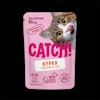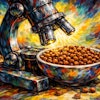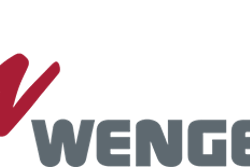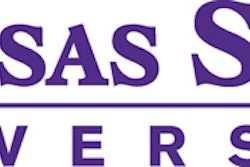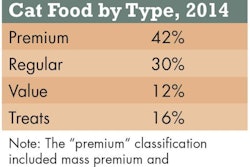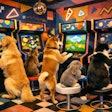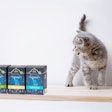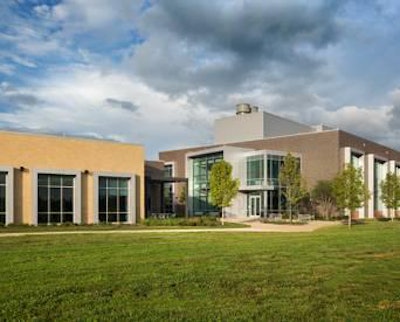
Sustainability in the petfood industry isn’t exactly a new topic of conversation. Companies have been finding ways to make their facilities, processes and partnerships more efficient and sustainable for years, with great success. But as consumers become ever-more aware of their impact on the world—and, by extension, their pets’ impact—it becomes increasingly important to be able to say your company is doing its part.
“I am convinced that sustainability will soon be a deciding issue for every industry, including petfood,” said Sander Geelen, managing director for Netherlands-based Geelen Counterflow. “The scientific evidence on climate change is so overwhelming that I can’t believe mankind will continue on the current track towards a 3–5 degree warmer world by the end of this century. If we want to avoid the dire consequences of such warming, we need to change course in the next few decades, replacing fossil fuels with renewable energy, stopping deforestation, increasing reforestation, avoiding methane leakage, working on carbon capture and storage, developing new clean energy sources, etc.
“At the same time, natural resources including fresh water, arable land and various raw materials are reaching their limits,” said Geelen. “All of this will force us into a different way of working, closing the biological and technical cycles in a circular economy.”
Many in the petfood industry have had an eye on sustainability for some time. In 2009, Novus International Inc.’s then-new headquarters was awarded the Platinum LEED (Leadership in Energy and Environmental Design) certification by the US Green Building Council. Platinum is the highest designation available to buildings that demonstrate energy efficiency and sustainability. "Our business is the creation of sustainable programs which enable health through nutrition for people and animals," said Thad Simons, president and CEO of Novus, when the certification was given. "Through the construction of this facility and now earning our LEED Platinum certification, we are sending a message to the world regarding our sustainable efforts, while achieving a superior work environment and reducing our operating costs."
In 2012, the International Animal Health and Food Safety Institute at the Kansas State University Olathe campus received the Silver LEED certification, something which had been planned from construction in 2011. "Achieving a LEED designation was part of the criteria for our design-build process,” said Dan Richardson, CEO at K-State Olathe. “The Weitz Company (the project’s design-builder) embraced this from the initiation of the project and maintained high standards in building practices and products that would achieve the Silver certification. It is one of numerous aspects demonstrating our commitment to a sustainable, environmentally friendly campus, as well as being good stewards of land given to us by the City of Olathe."
Some companies in the petfood industry have built sustainability into their core business practices, making it a part of company culture. Nestlé Purina, for example, believes that self-education is key to being successfully sustainable. The company’s approach includes prioritizing and managing environmental impact; constantly looking for ways to increase efficiency, reduce waste and conserve resources; working up and down the supply chain to responsibly source ingredients; and learning from others, including customers, environmental organizations, retailers and even companies in other industries.
There was a definite focus on sustainability in the petfood industry in 2014, particularly where new facilities were being built. In October, Mars Petcare opened the doors of its new, Gold-LEED certified US$110 million Global Innovation Center in Tennessee. The campus, the third Mars Petcare innovation center and the first in the US, focuses on dry cat and dog food in both the natural and mainstream petfood categories. The company pursued a number of design and construction solutions on the campus in order to achieve its Gold certification. The entire project was planned to maximize open space with energy-efficient products designed to consume at least 28% less energy than code-compliant buildings, according to Mars. All four buildings also feature low-flow plumbing fixtures to reduce potable water consumption by at least 40%.
The sustainability efforts at the Global Innovation Center are part of Mars’ overall aim to become carbon neutral by 2040, said the company. A number of strategies are being implemented to help meet this goal, including an investment in a 200MW, 118-turbine wind farm that will produce renewable energy equal to the electricity use in all of Mars’ US operations.
Geelen Counterflow, as part of its company goal to be "100% sustainable" by 2040, received a Five Star “outstanding” BREEAM-NL certificate for the sustainable design of the company’s new office in November. The design team earned a score of 94.19%, the highest score ever achieved in the Netherlands. The new office will be fully constructed with prefabricated walls and floors of 100% unglued and non-chemically treated wood, grown in sustainably managed forests in the Black Forest region of Germany. Where possible, "Cradle To Cradle" certified building materials will be applied.
By building according to the “Passive House” guidelines, and thanks to 330 solar panels on the roof, the new office will produce 50% more renewable energy than the total energy consumption for heating/cooling, ventilation, lighting, copiers/printers, servers and PCs, according to Geelen. Other sustainable features include thermal bridge free detailing, wide and tall window openings with triple glazing, Southern orientations with external sun shading, day light controlled LED lighting, geothermal heat probes and solar energy collectors. The excess of solar power will be used elsewhere on site for, among other things, charging of forklift trucks and laser cutting of stainless steel. Rainwater will be reused for flushing toilets and around the building ecological measures will be taken to promote biodiversity, said the company.
The industry can also look to its product lines for sustainability options. Wenger Manufacturing has a new line of preconditioners and extruders designed to reduce total energy consumption and to allow users to select which energy source (mechanical or thermal) will provide the major source of energy for machine operation. “By choosing the optimal energy source for their region, it is possible for petfood manufacturers to significantly reduce their energy costs,” said Galen Rokey, Wenger’s process technology director, companion animal division. “By choosing to use thermal energy sources as the major energy source, they can also rely on producing their own energy via boilers that are fired with renewable energy sources such as wood or locally grown combustibles.”
By 2040, Geelen intends for all the dryers it sells to be capable of running on renewable energy, according to the company. “We are already developing a zero carbon dryer and we expect to introduce it to the market within a few years,” said Geelen. “The bigger challenge is to make sure that such a zero carbon dryer is economically so attractive that it will become the preferred choice for all of our customers. All of this may seem like a dot on a very far horizon, but without that dot we will not make the choices we need to.”
Geelen is also focusing on intermediate targets, such as further increasing the energy efficiency of drying and cooling, improving moisture control and sanitary design standards, extending the lifetime of the company’s equipment and developing equipment according to “cradle to cradle” principles.
Whether it shows up on the blueprints of a new facility, the introduction of a product line or in a business strategy, sustainability has a hold on the petfood industry that is only expected to grow as the concept becomes more vital to business success.

